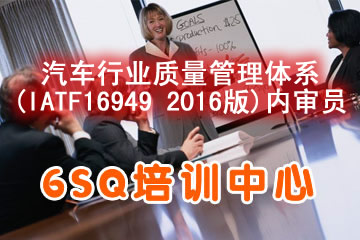质量问题--老板自杀 之 国外媒体评 我们要自强
China, Companies Have A Lot At Stake Over Major Recalls
Reinhardt Krause
Mon Aug 13, 7:00 PM ET
Never mind cheap. Now "Made in China" makes you think of suicides, executions, product recalls and export bans.
A spate of reports about defective or dangerous products has sparked a global backlash over the quality and safety of Chinese-made goods. And the bad news keeps coming.
The owner of a Chinese toy maker involved in Mattel's (NYSE:MAT - News) recent recall hanged himself, reports said Monday. Meanwhile, a leading supplier of toiletries for luxury hotels recalled complimentary tubes of Chinese-made toothpaste after tests showed some contain a potentially toxic chemical.
Suppliers Behaving Badly
Who's getting the blame for China's credibility crisis? Mostly suppliers that knowingly cut corners to reap higher profits.
But China's climb up the export ladder also poses hurdles, observers say.
Many of its factories are struggling to meet product specifications for an ever-expanding list of manufactured goods.
While China has been the source of low-cost apparel and furniture for many years, it now produces electrical goods, steel, machinery and automobile parts.
U.S. companies that do business in China are scrambling to better police their suppliers' production lines. While rogue suppliers have tainted China's image, sometimes its factories just struggle to be up to snuff.
"China is still very early in its industrial development and sins of omission are probably more likely than (purposeful) sins of commission," said Kent Kedl, general manager of Technomic Asia, which advises companies sourcing out of China.
Poisoned pet food first rattled China's export juggernaut in April. Then concerns arose over China's exports of seafood, drugs, toothpaste and tires. Mattel recalled 1.5 million Chinese-made toys worldwide in early August because of lead paint contamination.
Inept or corrupt regulators have often abetted rogue companies' efforts to substitute cheap ingredients for required materials. China's government executed a top regulator for taking bribes. It has vowed to set up stricter quality control programs.
The stakes are high. Economists don't think product safety problems have slowed China's exports, which topped $970 billion in 2006.
China's range of exports has expanded as more foreign companies tried to take advantage of low-cost labor and cheap materials, says Andrew Bartolini, analyst at Aberdeen Group.
"China has a burgeoning expertise in manufacturing capabilities. It's undergoing a rapid evolution. But with low costs come risks (for overseas buyers)," he said.
China can't let "Made in China" become a warning label, says David Reid, who directs the China Clinic for CEOs in Seattle University's business school.
Aside from suppliers, Reid says China's government also wants to protect the reputation of Chinese companies that sell products globally, such as appliance maker Haier, PC maker Lenovo, auto maker Chery and telecom gear maker Huawei.
"Beijing realizes that its biggest opportunity is to develop brands, with a reputation for high quality and reliability, that have legitimacy in world markets," Reid said. "The (product quality) backlash isn't being taken lightly."
A Culture Of Quality
China needs to create a business culture that focuses on product quality, much as Japan, Taiwan and South Korea did earlier, observers say. In the 1950s, many Japanese companies studied the work of American engineer W. Edwards Deming, who applied statistical analysis to quality control.
Some U.S. companies based in China have tried to spread the gospel of "Six Sigma" quality management. Motorola developed Six Sigma business process control techniques, which also have been used by many other companies. But Chinese manufacturers don't collect enough data to carry out Six Sigma rules, Kedl says.
In the wake of China's product recalls, U.S. companies are racing to ensure that their suppliers are producing safe goods.
Bartolini says big companies have the financial resources to send high-level managers and quality assurance teams to China. "It's not inexpensive to get people on the ground," he said.
Mid-sized and small companies usually rely on third-party consulting firms to audit factory conditions and inspect goods, Bartolini says. The quality of such middlemen varies and overseas buyers should be cautious, he adds.
Mattel's toy recall, though, shows that even big companies can be fooled by suppliers, says Paul Midler, head of China Advantage, which provides outsourcing and supply chain services.
"It's very difficult to use visual inspection or testing to solve a moral gap," Midler added.
Don't Fade Away
A common practice among some Chinese suppliers, he says, is to knowingly cut back on product quality after a few shipments have been made. He calls the process "quality fade."
Subcontracting manufacturing is common in China. Even a retailer such as Wal-Mart, which imports about $20 billion in products from China annually, may not know where all its goods are made.
"Most factories in China are anonymous," Midler said. "A factory that knows it's anonymous is much more likely to be playing cat-and-mouse games."
While shoddy work has always been a problem in China, safety scares are a new wrinkle, says Daniel Harris, an attorney at Seattle-based law firm Harris & Moure.
"Everybody who does business in China knows quality issues are a problem," he said. But it has usually been about little things, handles that break off purses.
"Now, if you're constructing a building using Chinese steel, you're probably wondering if you should retest it. It's human nature to be thinking that way."
Harris recommends that overseas buyers run credit checks on prospective suppliers. He says inspection rights should be clearly defined in contracts.
Choosing suppliers in China's urban areas also may be a good idea, Harris says, because China's legal system is uneven.
"There's a lot more business litigation now in China than two years ago, and the courts are improving," he said. "But, a court in Shanghai or Beijing is going to be a lot more sophisticated than one in some backwards outlying province."
In case of recalls, though, U.S. companies will find it very difficult to collect damages from suppliers.
"The typical Chinese manufacturer just doesn't have a lot of money, in part because margins are so low," Harris said.
Reinhardt Krause
Mon Aug 13, 7:00 PM ET
Never mind cheap. Now "Made in China" makes you think of suicides, executions, product recalls and export bans.
A spate of reports about defective or dangerous products has sparked a global backlash over the quality and safety of Chinese-made goods. And the bad news keeps coming.
The owner of a Chinese toy maker involved in Mattel's (NYSE:MAT - News) recent recall hanged himself, reports said Monday. Meanwhile, a leading supplier of toiletries for luxury hotels recalled complimentary tubes of Chinese-made toothpaste after tests showed some contain a potentially toxic chemical.
Suppliers Behaving Badly
Who's getting the blame for China's credibility crisis? Mostly suppliers that knowingly cut corners to reap higher profits.
But China's climb up the export ladder also poses hurdles, observers say.
Many of its factories are struggling to meet product specifications for an ever-expanding list of manufactured goods.
While China has been the source of low-cost apparel and furniture for many years, it now produces electrical goods, steel, machinery and automobile parts.
U.S. companies that do business in China are scrambling to better police their suppliers' production lines. While rogue suppliers have tainted China's image, sometimes its factories just struggle to be up to snuff.
"China is still very early in its industrial development and sins of omission are probably more likely than (purposeful) sins of commission," said Kent Kedl, general manager of Technomic Asia, which advises companies sourcing out of China.
Poisoned pet food first rattled China's export juggernaut in April. Then concerns arose over China's exports of seafood, drugs, toothpaste and tires. Mattel recalled 1.5 million Chinese-made toys worldwide in early August because of lead paint contamination.
Inept or corrupt regulators have often abetted rogue companies' efforts to substitute cheap ingredients for required materials. China's government executed a top regulator for taking bribes. It has vowed to set up stricter quality control programs.
The stakes are high. Economists don't think product safety problems have slowed China's exports, which topped $970 billion in 2006.
China's range of exports has expanded as more foreign companies tried to take advantage of low-cost labor and cheap materials, says Andrew Bartolini, analyst at Aberdeen Group.
"China has a burgeoning expertise in manufacturing capabilities. It's undergoing a rapid evolution. But with low costs come risks (for overseas buyers)," he said.
China can't let "Made in China" become a warning label, says David Reid, who directs the China Clinic for CEOs in Seattle University's business school.
Aside from suppliers, Reid says China's government also wants to protect the reputation of Chinese companies that sell products globally, such as appliance maker Haier, PC maker Lenovo, auto maker Chery and telecom gear maker Huawei.
"Beijing realizes that its biggest opportunity is to develop brands, with a reputation for high quality and reliability, that have legitimacy in world markets," Reid said. "The (product quality) backlash isn't being taken lightly."
A Culture Of Quality
China needs to create a business culture that focuses on product quality, much as Japan, Taiwan and South Korea did earlier, observers say. In the 1950s, many Japanese companies studied the work of American engineer W. Edwards Deming, who applied statistical analysis to quality control.
Some U.S. companies based in China have tried to spread the gospel of "Six Sigma" quality management. Motorola developed Six Sigma business process control techniques, which also have been used by many other companies. But Chinese manufacturers don't collect enough data to carry out Six Sigma rules, Kedl says.
In the wake of China's product recalls, U.S. companies are racing to ensure that their suppliers are producing safe goods.
Bartolini says big companies have the financial resources to send high-level managers and quality assurance teams to China. "It's not inexpensive to get people on the ground," he said.
Mid-sized and small companies usually rely on third-party consulting firms to audit factory conditions and inspect goods, Bartolini says. The quality of such middlemen varies and overseas buyers should be cautious, he adds.
Mattel's toy recall, though, shows that even big companies can be fooled by suppliers, says Paul Midler, head of China Advantage, which provides outsourcing and supply chain services.
"It's very difficult to use visual inspection or testing to solve a moral gap," Midler added.
Don't Fade Away
A common practice among some Chinese suppliers, he says, is to knowingly cut back on product quality after a few shipments have been made. He calls the process "quality fade."
Subcontracting manufacturing is common in China. Even a retailer such as Wal-Mart, which imports about $20 billion in products from China annually, may not know where all its goods are made.
"Most factories in China are anonymous," Midler said. "A factory that knows it's anonymous is much more likely to be playing cat-and-mouse games."
While shoddy work has always been a problem in China, safety scares are a new wrinkle, says Daniel Harris, an attorney at Seattle-based law firm Harris & Moure.
"Everybody who does business in China knows quality issues are a problem," he said. But it has usually been about little things, handles that break off purses.
"Now, if you're constructing a building using Chinese steel, you're probably wondering if you should retest it. It's human nature to be thinking that way."
Harris recommends that overseas buyers run credit checks on prospective suppliers. He says inspection rights should be clearly defined in contracts.
Choosing suppliers in China's urban areas also may be a good idea, Harris says, because China's legal system is uneven.
"There's a lot more business litigation now in China than two years ago, and the courts are improving," he said. "But, a court in Shanghai or Beijing is going to be a lot more sophisticated than one in some backwards outlying province."
In case of recalls, though, U.S. companies will find it very difficult to collect damages from suppliers.
"The typical Chinese manufacturer just doesn't have a lot of money, in part because margins are so low," Harris said.
没有找到相关结果
已邀请:





1 个回复
hym_000052 (威望:0)
赞同来自: